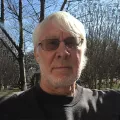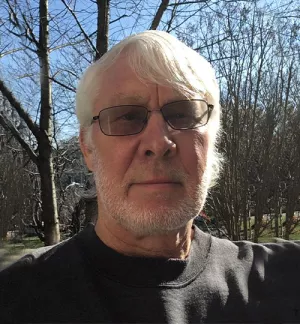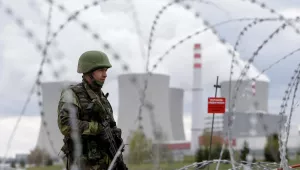Religious Justification For and Against Nuclear Weapons
AUTHOR'S NOTE
Threats cannot be fully appreciated without an understanding of the circumstances that give rise to them. Identifying and eliminating threats starts with an insider's understanding of the enemy's plans and intentions. Chinese military philosopher Sun Tzu said it best: "Know your enemy, and know yourself, and you will fight a hundred battles without catastrophe."
When I began this project, my goal was to develop insight into the deeper thought process behind al-Qaeda's nuclear intent. I expected to find evidence that their interest is strong, perhaps unshakable, but hinges on capability, i.e., they will use weapons of mass destruction if they are able to acquire them. Specifically, I set out to examine the impact al-Qaeda's ap- parent frustration in acquiring WMD has had on the group's intent; perhaps their interest has waned in recent years, or has been overtaken by global events.
I was surprised to discover that al-Qaeda's WMD ambitions are stronger than ever. This in- tent no longer feels theoretical, but operational. I believe al-Qaeda is laying the groundwork for a large scale attack on the United States, possibly in the next year or two. The attack may or may not involve the use of WMD, but there are signs that al-Qaeda is working on an event on a larger scale than the 9/11 attack.
When al-Qaeda number two Ayman Zawahiri published his book "Exoneration" in 2008, I dismissed it as the ranting of a leadership that is increasingly detached from reality. Reading various book reviews confirmed my impressions; terrorism experts dismissed "Exoneration" as a rather desperate, defensive reaction to a harsh critique of al-Qaeda by an imprisoned former associate.
So, I didn't bother to read the book. I only picked it up again this summer because I was searching for clues on the current status of the aborted WMD religious ruling (fatwa) that al- Qaeda issued in May 2003; I was informed that the author of that fatwa, radical Saudi cleric Nasir al Fahd, was cited in "Exoneration."
As I read the text closely, in the broader context of al-Qaeda's past, my concerns grew that Zawahiri has written this treatise to play a part in the ritualistic process of preparing for an impending attack. As Osama bin Laden's fatwa in 1998 foreshadowed the 9/11 attack, Ayman Zawahiri's fatwa in 2008 may have started the clock ticking for al-Qaeda's next large scale strike on America. If the pattern of al-Qaeda's modus operandi holds true, we are in the middle of an attack cycle.
Even if this theory proves to be wrong, it is better to overestimate the enemy than to under- estimate him. Conventional wisdom holds that al-Qaeda is spent—that they are incapable of carrying out another 9/11. Leaving aside whether this view is correct, for which I harbor grave doubts, we will surely miss the signs of the next attack if we continue to overestimate our own successes, and dismiss what terrorists remain capable of accomplishing when they put their minds to it.
Rolf Mowatt-Larssen
January 12, 2011
FOREWORD
It has been almost ten years since I was first charged with assessing the threat posed by terrorist use of weapons of mass destruction (WMD). I vividly recall the day, not long after 9/11, when the CIA received unequivocal intelligence that al-Qaeda was seeking the bomb. At the time, I took solace in the assumption that it was probably too difficult for them to get their hands on a nuclear weapon. I was wrong. We can not exclude the possibility of nuclear terrorism. It is not tomorrow’s threat; it is with us here today. The game changing impact of a single mushroom cloud could destabilize the world order and raise fundamental doubts about the ability of governments to continue to provide security for their people.
For years, I chased leads to al-Qaeda's efforts to acquire weapons of mass destruction (WMD), without finding the answers to fundamental questions. Yes, it is clear that al-Qaeda is seeking high-end WMD, specifically nuclear and biological weapons capable of causing mass casualties. But why has al-Qaeda set their sights so high? Isn't a "dirty bomb" or a chemical device a more probable threat, since such weapons are much easier to obtain? What is al-Qaeda's justification for using WMD — how much of a factor is religion in their thinking? What can terrorists hope to achieve by indiscriminately killing people on a mass scale?
In the absence of hard data, there are few facts and too many assumptions being made about terrorist WMD plans and intentions. As an intelligence officer at heart, I try to keep an open mind when analyzing a problem, but I must confess I find it hard to shake the intuitive logic of the troubling observation of Harvard's Graham Allison in the movie, Countdown to Zero: "You can't kill four million Americans by flying airplanes into buildings."
Sub-state actors are the latest players on the nuclear scene, but the aspirations of states remain of high concern as well. Over many years of tracking Iran's nuclear program, I remain uncertain about the Iranian leadership's real intentions — is their quest for nuclear energy merely a cunning cover for developing nuclear weapons? Has a decision already been made to build a bomb? If so, who has made this decision, and on what basis? How important is the religious case, for or against nuclear weapons, in an Islamic theocracy? Are conflicting statements concerning the status of nuclear weapons issued by clerics and scholars signs of dissension between religious and secular authorities in Iran?
Understanding Iran's nuclear intentions assumes the added dimension of if and when Iran gets the bomb. A nuclear-armed Iran will pose new proliferation risks surrounding the possible transfer of nuclear capability and know-how from state to sub-state actors, such as Hezbollah and Hamas. Scant attention has been paid to the nuclear intent of surrogate groups and their collusion with Iranian insiders with access to nuclear facilities.
Considering the daunting challenge of divining what lies in someone's mind, my modest objective is to present a framework for analyzing key factors that impact on the religious justification under Islam for and against nuclear weapons. Al-Qaeda (Sunni extremism) and Iran (Shia theocracy) are offered as two case studies in this regard, because their potential acquisition of nuclear weapons is of greatest contemporary concern. Presenting them side by side will invite a comparison of the respective arguments of a state and sub-state actor, in both houses of Islam. However, their inclusion together in this project should not be construed as an effort to compare or equate al-Qaeda and Iran with one another, either their motivations, or in moral terms.
The sections of this report represent a compilation of the various arguments that are being made in the Islamic community today. I have endeavored to faithfully represent the views of key voices in the Muslim world, scholars, and extremists, whether they are for or against nuclear weapons — and to put their testimony on the record. For this reason, the paper contains a large number of quotes and excerpts of key lines of reasoning for and against the bomb.
I was surprised to learn that there is a lack of basic research on the issues that sit at the cross- roads of nuclear proliferation, terrorism and religion. Perhaps this is due to the fact there are many experts in each of these domains, but very few experts in all three. Moreover, a nuclear attack has not happened in over half a century, perhaps reinforcing an unfortunate misperception that the dangerous interplay between states and sub-state actors in the nuclear arena is still a theoretical problem.
This report is written for expert and layperson alike. It is meant to stimulate thought, provoke questions, and most importantly, broaden public awareness concerning the threat posed by nuclear weapons. After years of working on the problem, I have come to believe that eliminating the appeal of possessing nuclear weapons must come from people of all backgrounds and beliefs who are willing to speak out against the corrosive moral effects of these weapons of mass destruction. There is a growing global consciousness that the use of nuclear weapons can never be justified for any reason. We must nurture this feeling; rogue states and terrorists can ignore that reality, but they are not going to change it.
Despite the intrinsically depressing nature of nuclear catastrophe, I remain an inveterate optimist. We can prevent WMD terrorism and eliminate the threat. From this project, I have learned that in the Muslim world, the debate over nuclear weapons is being held in earnest, fed by a yearning for social justice and human rights, and based on sincere religious convictions. The West must fearlessly join the discourse by showcasing its values and beliefs, because we are all in this together. Truth, itself, is at stake, and in the end, it will prevail.
"There can be no peace among nations without peace among religions" — Hans Kung
DOWNLOAD
Given the large size of the full report, we're also making it available to download in sections:
- Islam and the Bomb: Part 1 (6 MB PDF)
- Islam and the Bomb: Part 2 (2.7 MB PDF)
- Islam and the Bomb: Appendices (2.7 MB PDF)
Mowatt-Larssen, Rolf. “Islam and the Bomb.” Belfer Center for Science and International Affairs, Harvard Kennedy School, January 2011




